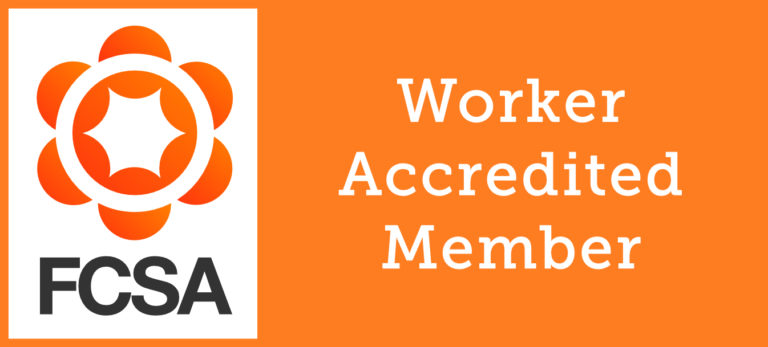
With over 40,000 nursing vacancies currently available in the UK, healthcare professionals are in urgent demand, putting experienced staff in a strong position when applying for new roles. However, the skills shortage does not guarantee career progression for everyone. Job roles in private hospitals and care homes are increasingly competitive as nursing specialists leave the National Health Service in search of higher wages and more manageable workloads. The NHS will also require its nurses to step up to help train the fresh new recruits and experienced staff brought in from abroad to compensate for Brexit-led departures of EU health workers, and the multiple challenges of the pandemic, rising poverty and mental health challenges in the UK population.
Generate’s payroll and contractor management specialists have helped thousands of healthcare professionals. We reveal the interview questions you’re most likely to face in a nursing job interview, and most importantly, how to answer them.
The 5 Questions You’ll Be Asked in Your Next Nursing Job Interview (And Which Answers to Give)
1. Why Do You Want This Job?
Interviewers will be looking for a number of things with this question. Your answer needs to explain both your passion for patient care and the specific reasons that you applied for this particular role. This presents an opportunity for newly qualified nurses to share what brought them into the healthcare profession: make your answer as personal as possible to cement a positive impression of yourself in the mind of your interviewer and stand out amongst the other candidates.
Your response should show your personality – your interests, what motivates you and some of the skills you have – as well as evidencing that you are a fit for the role at hand, and have both the ability and appetite to develop in the coming months and years. Mention specific elements of the job description, and directly match your skills and personal motivations to the specifics that the job will require. For example, reinforce your recent few years’ supporting patients with a certain mental health challenge and courses you have taken to improve your skills, to show both your ability and interest in the job requirements.
2. Why Are You the Best Person for This Role?
Interviewers will be looking to understand more about your skills, experience and the elements that are harder to understand just from your CV, including the knowledge you’ve built in certain areas and softer skills like communication, negotiation and working in a team.
Competency-based interview questions will likely be involved at some point in your meeting to gage the real-life application of your skills and use your past success to demonstrate your future potential. Prepare an example of how you’ve dealt with a challenging situation that is relevant to the role at hand, focusing on what you did differently to how another nurse may have handled the situation. Tell your interviewer how your quick-thinking, problem-solving, empathy or relationship-building helped patients and colleagues when they most needed it. Tie this situation back to the role you’re interviewing for to prove your capability to manage the challenges the new role could present.
3. What Is the Hardest Part of Your Job?
This question is designed to get to the root of your motivations and capabilities as an individual nurse, as well as your potential for career development in a new role. Your interviewer will know the difficulties of the job, but they will want to know your own particular strengths and weaknesses, and what you’re actively doing to continually improve.
This question provides the perfect opportunity to demonstrate your awareness of your own limitations, your ability to change and push yourself, and your determination and motivation to advance in your career. Put patient care at the heart of your response and explain your progress in upskilling, your methods for managing stress and emergencies, and the success you’ve had in combatting challenges with your improvement efforts.
4. What Does a Good Shift Look Like?
Whilst every nursing professional knows that a well-staffed shift with enough beds and without any patient emergencies is a rare ideal, this question is designed to assess more than just what you find annoying or difficult at work. Your interviewer will want to be assured that you really are a match for the job based on what you want to do and excel at day-to-day.
A good shift for any nurse will involve delivering safe, effective care for patients that provides them with the best outcome. Healthcare managers want to hear about nurses who enjoy taking the time to connect with patients and their families, listen to their needs and concerns, and go above and beyond to address challenges, as well as completing the duties required in their official job description.
Managers will also be looking for resilience. Mental health difficulties in public sector staff reached crisis point during the Covid-19 pandemic, with 25% of nurses reporting depression and half reporting regular anxiety and long-term sleep difficulties. Head nurses and department managers are increasingly prioritising the wellbeing of their teams, and will look to hire and promote those who are ready for the additional responsibilities that a new role will bring. Providing an example of how you have demonstrated resilience in the face of emergencies and unexpected challenges can also showcase your relationship and collaboration skills, to help your interviewer understand how you’ll fit into their team to support colleagues and patients.
5. What Are You Most Proud of In Your Career?
This question will assess many things:
- Your skills, experience and knowledge
- What is most important to you, personally and professionally
- Your awareness of your job performance, your abilities and yourself.
Your answer can present you as the best candidate by demonstrating how well you match the six Cs of nursing: care, compassion, competence, communication, courage and commitment. The ideal response will show your true dedication to your job and to individual patients with an example of a time where you went beyond the basic expectations of your role. This situation will have been a time where you were out of your comfort zone and pushed your own boundaries for the sake of helping your patients and your colleagues. You’ll have learned one or many valuable things from this experience, and the reason you’re proud will be both overcoming a previous challenge and the outcome that you achieved for your patient.
Get the Best Support in Your Nursing Career
Generate have over a decade’s experience supporting healthcare professionals at all levels of their careers. Find out how we could help you with contracting and payroll queries.
Discover the 3 Challenges Nurses Will Face in Their Careers in 2022.











